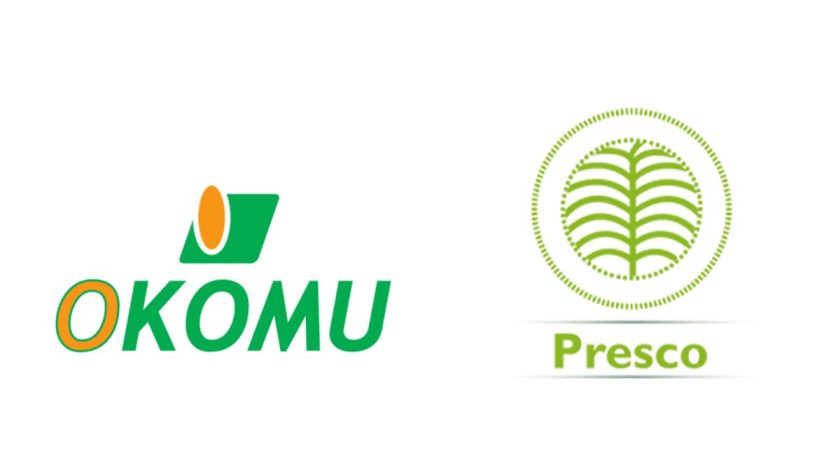Nigeria’s Palm Oil Powerhouses: Okomu, Presco Thrive Amid Global Market Shifts
As global palm oil dynamics shift, Nigeria’s agro-industrial giants, Okomu Oil Palm Company Plc and Presco Plc, are emerging as key players in the sector. Despite macroeconomic challenges—soaring inflation, naira depreciation, and rising production costs—both companies have posted record revenues and profits in 2024, reinforcing their dominance in Nigeria’s palm oil industry.
The recent decision by Indonesia, the world’s largest palm oil producer, to increase its crude palm oil (CPO) export levy from 7.5% to 10% (effective May 17, 2025) could reshape global supply chains. This move, aimed at funding domestic biofuel programs and replanting initiatives, may tighten CPO supply and push prices higher.
For Nigeria—the fifth-largest producer but still dependent on imports for nearly half of its 2 million metric tons (MMT) annual demand—this presents both a challenge and an opportunity.
Rising Demand, Soaring Profits
Okomu Oil and Presco have capitalised on strong domestic demand and favourable pricing trends. In 2024, Nigeria’s palm oil prices surged from N950,000 per metric ton to N1.3 million, driven by inflation and currency depreciation. Okomu’s export revenue skyrocketed to N22.5 billion (up from N7.95 billion in 2023), benefiting from a weaker naira that made Nigerian CPO more competitive in international markets.
Both companies operate vertically integrated models—controlling everything from plantations to refining—which reduces reliance on imported inputs and enhances profitability. Presco, for instance, is expanding its milling capacity to 90 tons per hour and refining capacity to 500 tons per day, while Okomu’s diversified revenue streams, including rubber production, provide additional stability.
Indonesia’s Levy Hike: A Boon for Nigerian Producers?
Indonesia’s export tax increase could drive global CPO prices upward, further benefiting Nigerian producers who already sell at an 89% premium over international prices due to local supply shortages. With imports becoming more expensive, Nigerian manufacturers may increasingly turn to domestic suppliers like Okomu and Presco, boosting their revenues.
Additionally, Nigeria’s CPO exports could gain traction in West African and European markets if global prices continue to rise. Edo State, home to both Okomu and Presco, contributes 12% of Nigeria’s palm oil output, with over 70,000 hectares allocated for new plantations under the Edo State Oil Palm Programme (ESOPP). This positions the region as a critical hub for future expansion.
Sustainability and Innovation
Presco’s biogas plant—the first of its kind in West Africa—exemplifies the industry’s shift toward sustainability, reducing operational costs while enhancing environmental credentials. Okomu’s rubber segment also adds resilience, providing a buffer against palm oil market volatility.
Capital Market Confidence
Investors have taken notice of both firms’ strong financials. Presco’s N100 billion bond issuance—the largest in Nigeria’s agro-sector—highlights investor confidence, offering a 23.5% yield. Meanwhile, Okomu’s 6.27% dividend yield continues to attract income-focused investors.
Challenges Ahead
Despite their successes, both companies face rising input costs, with fertilizer and energy expenses increasing by 76.5% for Okomu and 58.1% for Presco in 2024. Infrastructure gaps, including poor transportation networks and security concerns, also pose risks to supply chains.
The Path Forward
Nigeria must reduce its $600 million annual palm oil import bill by incentivising local production. With global biodiesel demand rising—evidenced by Indonesia’s B35 policy—CPO prices may remain elevated, creating long-term opportunities for Okomu and Presco.
Okomu Oil and Presco are Nigeria’s most formidable agro-industrial players, leveraging vertical integration, export opportunities, and domestic demand growth. As Indonesia’s export levy tightens global supply, these companies stand to gain from higher prices and increased market share. For Nigeria to achieve self-sufficiency in palm oil, scaling up investments in local production is imperative—and Okomu and Presco will be at the heart of this transformation. #Nigeria’s Palm Oil Powerhouses: Okomu, Presco Thrive Amid Global Market Shifts#
Note: All figures references analytical information and data cited are drawn from 2024 financials and market reports.

